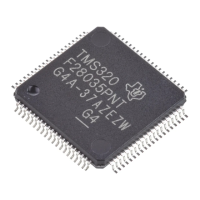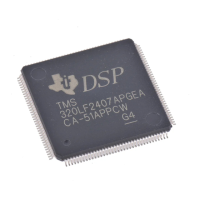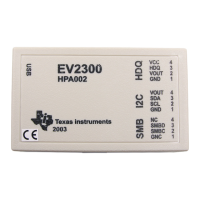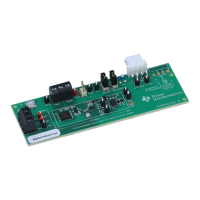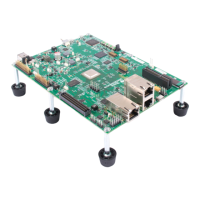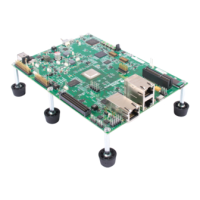String
to
Number
strtod/strtol/strtoul
Syntax
#include
<stdlib.h>
double
strtod(nptr,
endptr)
char
*nptr;
char
**endptr;
long
int
strtol(nptr,
endptr,
base)
char
*nptr;
.
char
* *
endptr
;
int
base;
unsigned
long
int
strtoul(nptr,
endptr,
base)
char
*nptr;
char
**endptr;
int
base;
Defined
in
strtod.
c in
rts.
src
strtol.
c in
rts.
src
strtoul.
c in
rts.
src
Description
Three functions convert ASCII strings
to
numeric values. For
each
function,
argument
nptr
points
to
the original string. Argument
endptr
points
to
a
pointer; the functions set this pointer
to
point
to
the first character after the
converted string. The functions that convert
to
integers also have a third
argument,
base.
• The
strtod
function converts a string
to
a
floating-point
value. The
string must have the
following
format:
[space] [sign] digits [.digits] [elE [sign] integer]
The function returns the converted string;
if
the original string is
empty or does
not
have the correct format, the function returns a
O.
If
the converted string
would
cause
an
overflow, the function returns
±HUGE-VAL;
if
the converted string woul.d cause
an
underflow, the
function returns
O.
If
the converted string causes
an
overflow or
an
underflow, errno is set to the value
of
ERANGE.
• The
strtol
function converts a string
to
a long integer. The string
must have the
following
format:
[space] [sign] digits [.digits] [elE [sign] integer]
• The
strtoul
function converts a string to a long integer. The string
must be specified in the
following
format:
[space] [sign] digits [.digits] [elE [sign] integer]
The space is indicated by a spacebar, horizontal or vertical tab, carriage re-
turn, form feed, or
newline. Following the space
is
an
optional sign, and
then
digits that represent the integer portion
of
the number. The fractional
part
of
the number follows, then the exponent, including
an
optional sign.
The first unrecognized character terminates the string. The pointer
that
endptr
points to
is
set
to
point
to
this character.
6-81
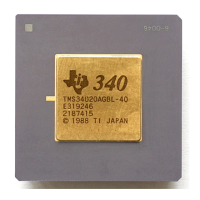
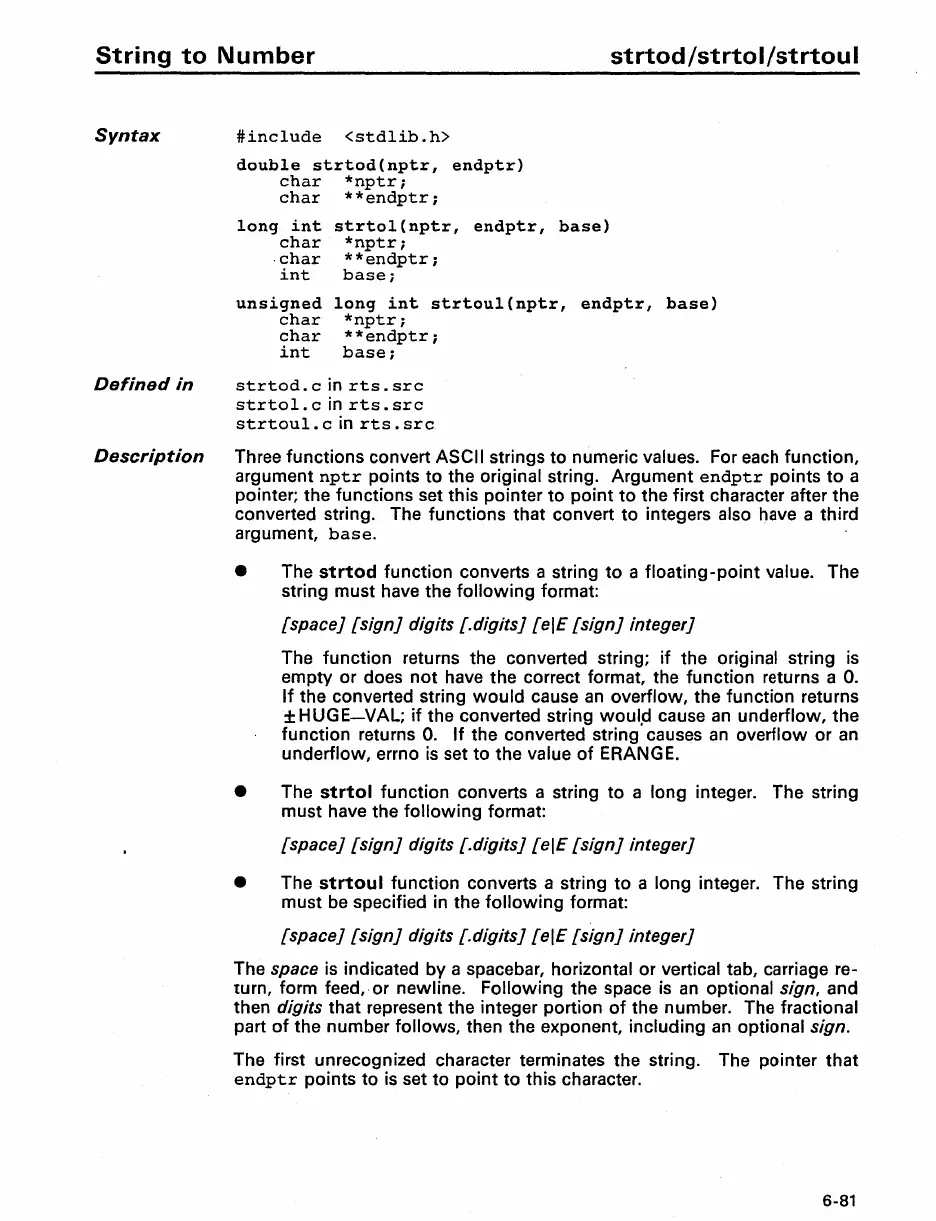